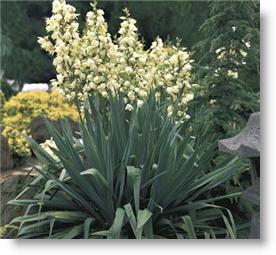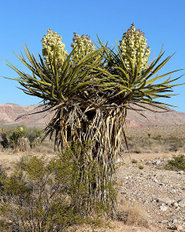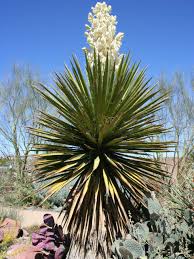Arizona Plant life-Yucca; a gift from the desert
YUCCA: SOUTHWESTERN FLORA OF THE DESERT
When most of us think of the desert, we think of rocks and cacti and sand and a rather barren landscape. However, this climate is home to many useful and medicinal plants that grow right under our noses. I am currently travelling through the Southwest of the United States and I of course have been scouting out the plants that I use in my Health and Beauty line. Many of them are found here in Arizona in bountiful arrays of shape and color. Yucca is one of my very favorite plants for many reasons.
I use Yucca in my skin care products for the amazing anti aging, pore shrinking, cleansing and natural spf constituents it contains. I use Yucca in the following products:
CLEAR SKIN LINE
Serum- water based anti-aging and oil balancing nutrition for your face
Lotion- Moisturizing for oilier or combination skin
Toner- tones combination skin and clears oil and dirt
Apricot Scrub-exfoliating cleanser for the face
Strawberry Detox Mask- Clay and herbal mask for detoxification of the skin
MEDICINAL USES
Traditionally, it has been used for:
– Cleansing
– Anti-inflammatory abilities
– Balding
– Arthritis
– Skin Cell Regeneration
– Dandruff (externally)
– Detoxifying
– Sensitive skin
– Painful Joints
– Healing Wounds
Photoprotective Properties
Mexican researchers evaluated the ability of several active components extracted from Yucca periculosa, a species native to Mexico, to prevent skin damage from ultraviolet radiation. They tested yucca-derived resveratrol, naringenin and trans-3,3′,5,5′-tetrahydroxy-4′-methoxystilbene, a phenolic compound that is structurally similar to resveratrol. All three substances prevented UV-induced skin damage, and all had an SPF higher than that of a commercial sunscreen in which octyl methoxycinnamate, an organic ester, was the active ingredient. Researchers reported their findings in a 2010 issue of “Boletin Latinoamericano y del Caribe de Plantas Medicinales y Aromaticas.”
Antioxidant Properties
Yucca contains resveratrol. Resveratrol is a natural phytoalexin has proven antioxidant properties that protect the body from damage caused by oxidation. Oxidation produces free radicals that can lead to an increased potential for conditions such as heart disease, and aging of the skin. Yucca roots can help stop the buildup of oxygen free radicals, and prevent blood vessel damage.
A natural cell regenerating ingredient, Yucca works to support the health of skin cells and promote the growth of younger cells. The hair and scalp benefit from Yucca as well, calming irritation through high concentrations of saponins. Yucca is also a rich source of polyphenols, including resveratrol and a number of antioxidants containing anti-inflammatory properties.
Detoxification
Yucca, known as the “soap root” by Native Americans due to it’s use in soap making for it’s natural lathering, deep cleansing, and detoxifying abilities. Containing fiber and a slew of vitamins and minerals (calcium, potassium, Vitamins A, B and C, iron, copper, manganese, and phosphorus), Yucca makes an excellent skin and hair conditioning ingredient and lathering substitute for Sodium Laureth Sulfate, and Sodium Laurel Sulfate.The yucca root and leaves have steroidal saponins which are used for inflammation, pain relieving for arthritic and joint pain. It is also good for blood purifying and cleaning of the kidneys and liver. (1st herbshop, 1999). Many herbalists and healers used the yucca plant by boiling the roots for about half an hour and drinking it as tea.
Cartilage and soft tissue regeneration
This plant has been used medicinally for arthritis and inflammation treatments due to the natural soothing and calming properties in the extracts from the stalk and root. A natural cell regenerating ingredient, Yucca works to support the health of skin cells and promote the growth of younger cells. The hair and scalp benefit from Yucca as well, calming irritation through high concentrations of saponins. Yucca is also a rich source of polyphenols, including resveratrol and a number of antioxidants containing anti-inflammatory properties.
Arthritis and rheumatism
Steroidal saponin is a highly active compound found in yucca plants. Saponins are precursors to cortisone and provide relief for symptoms of arthritis and rheumatism pain (Dr. Larry Milam, H. MD; 1999). Rich in Vitamin A, B-complex, and Vitamin C, yucca is also a good source of copper, calcium, manganese, potassium, and fiber. (Medicinal uses of herbs,1999).
*Always consult your health care provider before embarking on any health regimen.
Cholesterol reduction
Lower Cholesterol; The high saponin content of yucca roots allow its extract to dissolve in water and oil, notes Drug Digest. Once in the stomach, these saponin particles attach to cholesterol, and can assist to prevent the body from absorbing it. This allows cholesterol to easily be expelled from the body as bile. More cholesterol in your bile means less cholesterol in your bloodstream.
Steroidal saponin is a highly active compound found in yucca plants. Saponins are precursors to cortisone and provide relief for symptoms of arthritis and rheumatism pain (Dr. Larry Milam, H. MD; 1999). Rich in Vitamin A, B-complex, and Vitamin C, yucca is also a good source of copper, calcium, manganese, potassium, and fiber. (Medicinal uses of herbs,1999).
PROTOZOA and Cholesterol control: Saponins have an affect on protozoal diseases. Many protozoa enter the body through the digestive tract, sometimes infecting the small intestine and causing severe diarrhea and other symptoms. Saponins form strong insoluble complexes with cholesterol and the Institute says this has many important implications for humans, including cholesterol-lowering activity. “This desirable effect is achieved by the binding of bile acids and cholesterol by saponins. Cholesterol is continually secreted into the intestine via the bile, with much of it reabsorbed. Saponins cause a depletion of LDL (bad) cholesterol by preventing its reabsorption.”
This allows bad cholesterol to easily be expelled from the body as bile. More cholesterol in your bile means less bad cholesterol in your bloodstream!
****New Research****
In the past decade, more than one hundred universities and institutions around the world have investigated the natural healing properties of the yucca plant. Studies indicate that adding yucca plant to the diet can wash out the harmful toxins that cause arthritis. Used as a food supplement, yucca extract acts like a natural form of cortisone, to reduce and eliminate pain, swollen and stiff joints. Scientists are studying how saponins found in the yucca plants can help lower blood pressure and cholesterol levels, reduce intestinal toxicity, fight fungal infections, combat microbes and viruses, boost the effectiveness of certain vaccines, and possibly inhibit or even kill cancer cells, amazingly, with no reported side effects.

NON MEDICINAL USES
TRADITIONAL USES:
The Yucca has medicinal, utilitarian, and cultural uses. The stalks are eaten as a substitute for pumpkin in pies and breads. The Yucca produces berries which can be soaked, pounded with Yucca fruit, mixed with water and drained to make a drink. The flowers can also be eaten raw. The leaves of the Yucca can be used for arthritis, fever, headaches, ulcers, and appendicitis. When boiled, the roots can be used for sores, hives, chicken pox, itching rashes, and gangrene. Also, the start or the “heart” of most baskets, comes from the “heart” of the Yucca plant. Leaves were also dried and processed by the Luiseño to make ropes, nets, snares, skirts and woven sandals. Today, one can buy Yucca extracts, pills, and juices at most health food stores.
Nets of yucca fibers were used by the Kumeyaay Indians to capture rabbits; fish were caught with abalone shell hooks and lines made of yucca, as well as agave or yucca nets made with cactus thorns.American Indians have traditionally used the yucca plant to treat the symptoms of arthritis, rheumatism and gout. Medical research is proving them right.
MODERN INDUSTRIAL USES
Interestingly, yucca extracts are used in beverages such as root beer and slurpies to provide the foamy ‘head.’ They are also used industrially in mining and ore separation, in preparation of emulsions for photographic films and extensively in cosmetics, such as lipstick and shampoo. The antifungal and antibacterial properties of saponins are important in cosmetic applications, in addition to their emollient effects. Yucca extracts are also used for ammonia and odor control in pig and poultry-raising facilities and in dog and cat food.
**********************************************************************************************************************
Disclaimer
Please be aware that this information is provided to supplement the care provided by your physician. It is neither intended nor implied to be a substitute for professional medical advice. CALL YOUR HEALTHCARE PROVIDER IMMEDIATELY IF YOU THINK YOU MAY HAVE A MEDICAL EMERGENCY. Always seek the advice of your physician or other qualified health provider prior to starting any new treatment or with any questions you may have regarding a medical condition.
References
- Dr. Ray Sahelian, M.D.: Yucca Root Supplement Health Benefit and Medical Uses
- USDA: Natural Resources Conservation Service: PLANTS Profile: Yucca
- Journal of Diabetes and Its Complications: The Effects of Yucca Schidigera and Quillaja Saponaria on DNA Damage Protein Oxidation, Lipid Peroxidation and Some Biochemical Parameters in Streptozotocin-Induced Diabetic Rats
- Journal of Inflammation: Anti-Inflammatory and Anti-Arthritic Effects of Yucca Schidigera: A Review
- Boletin Latinoamericano y del Caribe de Plantas Medicinales y Aromaticas: Photoprotective Activity of Yucca Periculosa Polyphenols
- Nutrition: Inhibition of Oxidative Stress in Blood Platelets by Different Phenolics From Yucca Schidigera Roezl. Bark








This Post Has 0 Comments